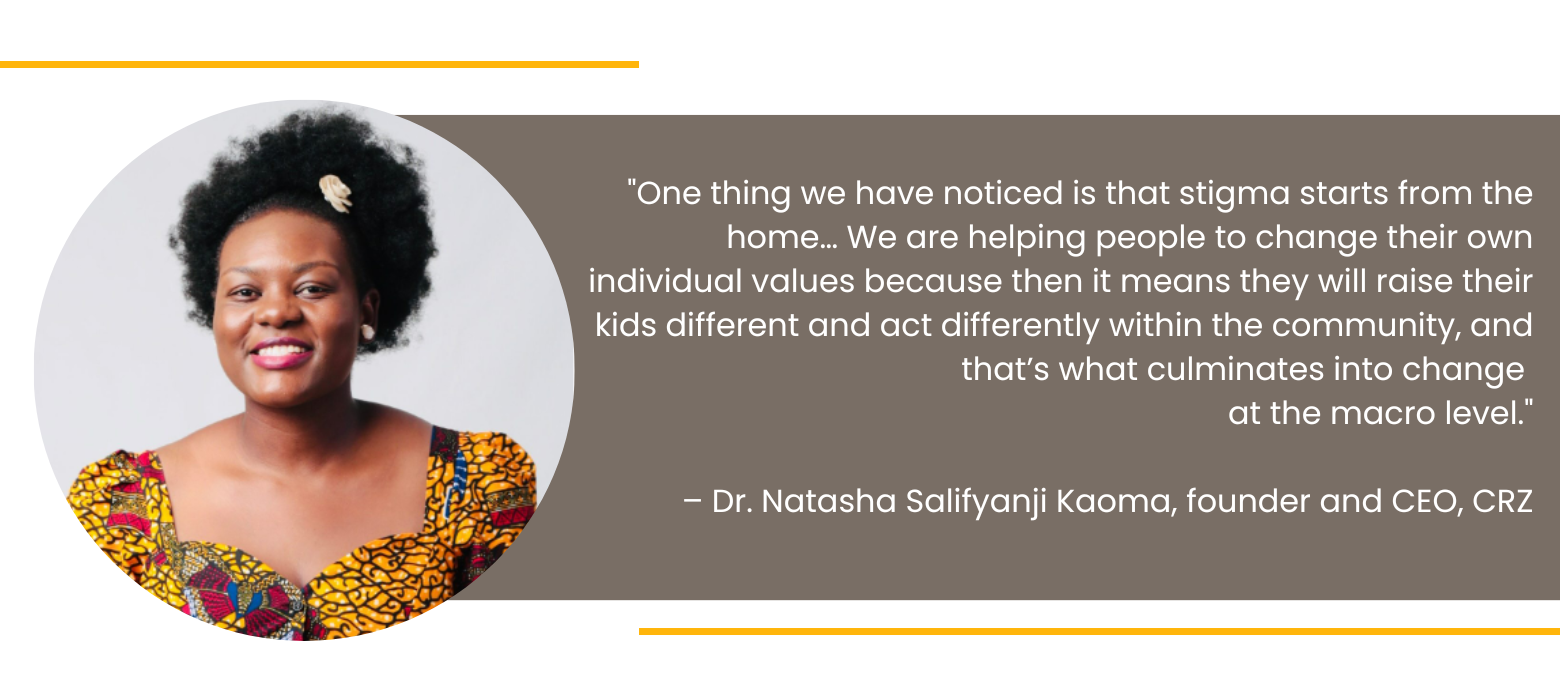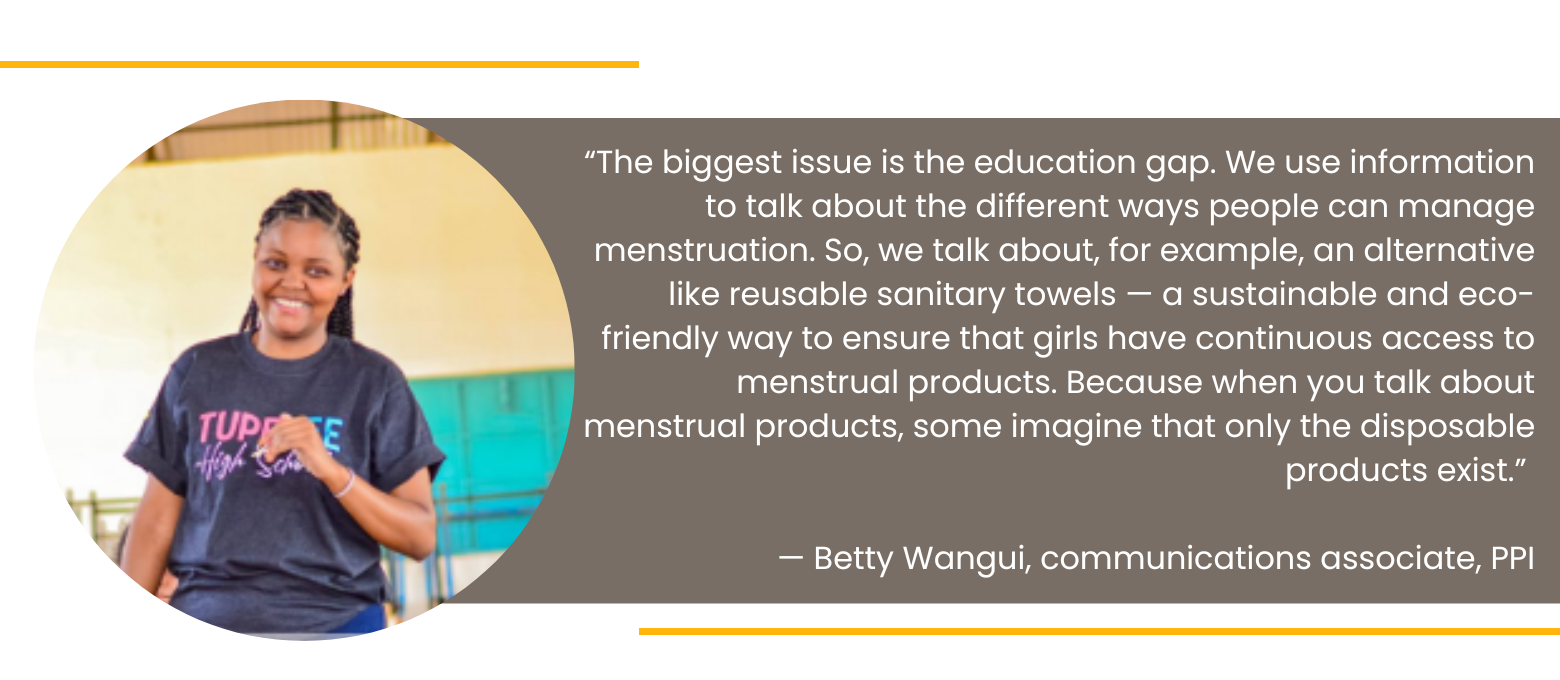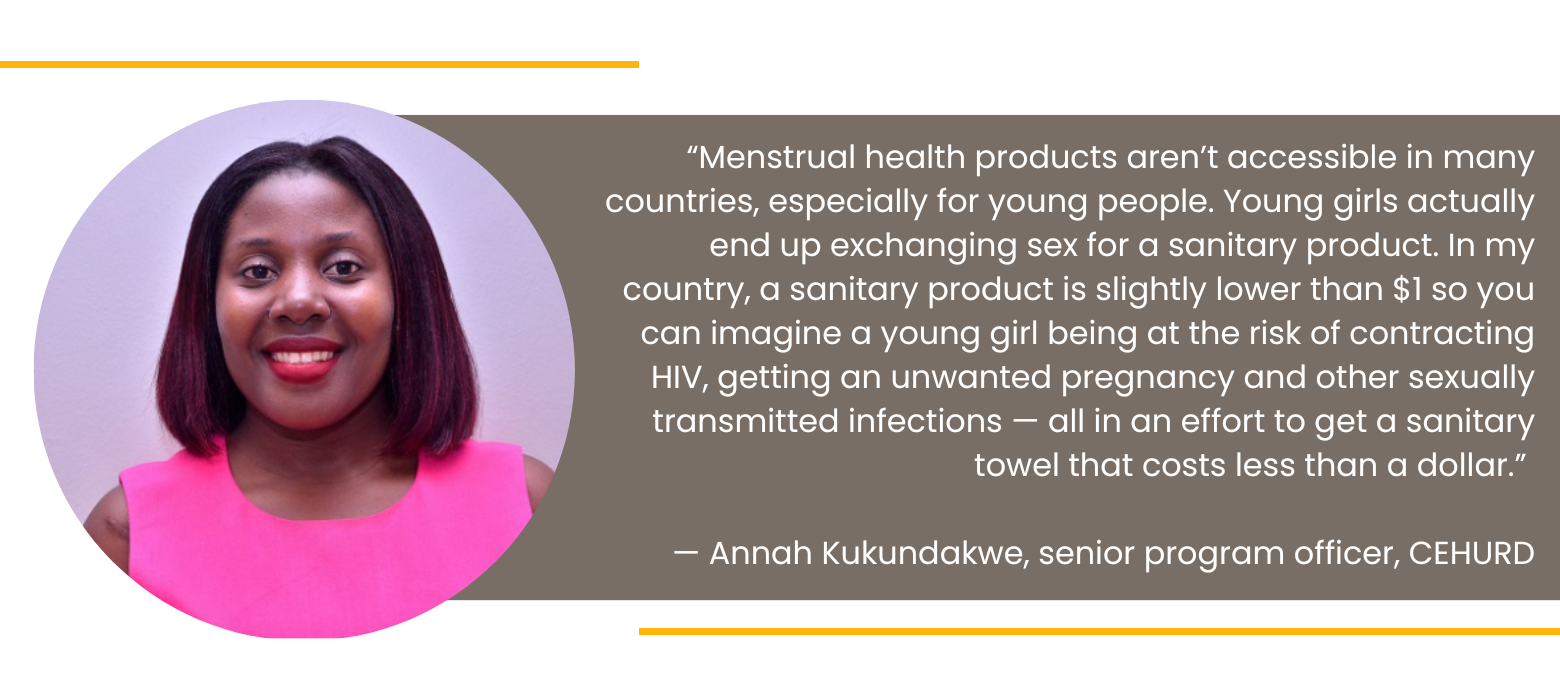Lame Excuse: Rubio Cuts Off Funding to the United Nations Population Fund (UNFPA)

Many know (or fear) this experience: being mercilessly teased by your peers, because you unexpectedly started your period and bled through your clothes. Maybe you hoped it would be different as an adult, but now you’re awkwardly sifting through your wallet to find enough coins to afford a tampon in a vending machine that you hope is working and stocked. All the while, you’re paying for expensive menstrual products that should be free and considered essential like soap or toilet paper. Maybe you’ve had your feelings invalidated by someone saying you’re too “emotional,” placating their demeaning statements with the classic, “it must be that time of the month.”
Many people have dealt with negative perceptions that falsely characterize the menstruating body as abnormal, unclean and shameful — a phenomenon known as period stigma, which excludes women, girls and people who menstruate around the world from attending social activities, school, work and places of worship. The long-term ramifications of period stigma can be severe: it can force girls to drop out of school or miss work, which limits their educational opportunities and economic mobility. Isolation also occurs in the private sphere, with some people forced from their homes for the duration of their periods, leaving them vulnerable to a range of health threats.
We talked to some of PAI’s civil society organization partners — Uganda’s Center for Health, Human Rights and Development (CEHURD), Copper Rose Zambia (CRZ) and Kenya’s Pathways Policy Institute (PPI) — to better understand their specific challenges and recommendations. They shared insights about specific challenges such as limited menstrual health education, having access to only one type of menstrual health product, challenges for those who are disabled, and even the reality that some people may not have underwear and thus can’t use a sanitary napkin.

Period stigma is pervasive and harmful and has made menstruation a taboo subject. People are often discouraged from talking about periods, leading to a lack of knowledge about what constitutes a normal period, how to safely manage menstruation or how it is related to sexual and reproductive health (SRH). Not understanding healthy bodily functions and receiving insufficient health care can be scary and have serious impacts on mental health.
Improving information and access is critical. When people don’t know how to manage their menstrual health safely, they are at higher risk of infection or reproductive health complications. Unsafe practices like wearing a pad or tampon for too long or not properly washing reusable pads can result in reproductive or urinary tract infections that, if not treated, can cause long-term fertility and pregnancy issues. People deserve to live healthy lives, but they cannot adopt healthy practices if they aren’t taught.

Period stigma also prevents menstruation products from being considered essential goods, preventing wide and free distribution. In many countries, as well as in specific states within the U.S., this results in products being priced higher or even taxed as luxury items. Known as a “period tax” or “tampon tax,” this prohibitive economic policy keeps necessary supplies out of reach for individuals who cannot afford them — leaving people with limited and sometimes unsafe options.

Stigma builds off stigma. As a result, underserved communities, including people with disabilities and gender-diverse individuals, experience even more barriers to menstrual management. When people with disabilities are excluded from school or community centers, they lose access to vital menstrual health programming. Others aren’t even given the opportunity to be part of the conversation due to stereotypes and misunderstandings around gender, disability and sexuality. Myths around periods, who does (or doesn’t) menstruate and who deserves access to social support further exacerbate inadequate access to critical information, goods and services.
Silence creates and reinforces stigma. The simple, radical act of speaking up can help shatter it. To end period stigma, we need to break the silence and actively normalize menstruation and our experiences. This is a crucial step for recognizing and remedying barriers to access and creating a safe environment for women, girls and people who menstruate.
This May, PAI was honored to commemorate Menstrual Health Awareness Month. Because menstruation is worth recognizing and celebrating. PAI commits to working to end barriers that negatively impact people’s health and well-being. Everyone deserves the right to high-quality health care and bodily autonomy — including menstrual health.
Help end period stigma by joining PAI’s global ecosystem of advocacy partners in celebrating menstrual health this month and beyond! Speak out about why menstrual health matters to you or how we can break the taboo by joining our conversation on Twitter using the hashtag #PeriodPositivePAI.
We are fighting back against the onslaught of harmful policies that discard reproductive rights.
Stay informed about the issues impacting sexual and reproductive health and rights.
